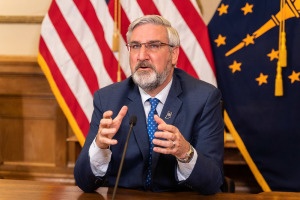Indiana BMV leader stepping down, to be replaced by Department of Labor chief
Peter Lacy, commissioner of the Indiana Bureau of Motor Vehicles since 2017, plans to leave his position May 27 and will be replaced by Indiana Department of Labor Commissioner Joe Hoage the next day, Gov. Eric Holcomb announced Tuesday.







